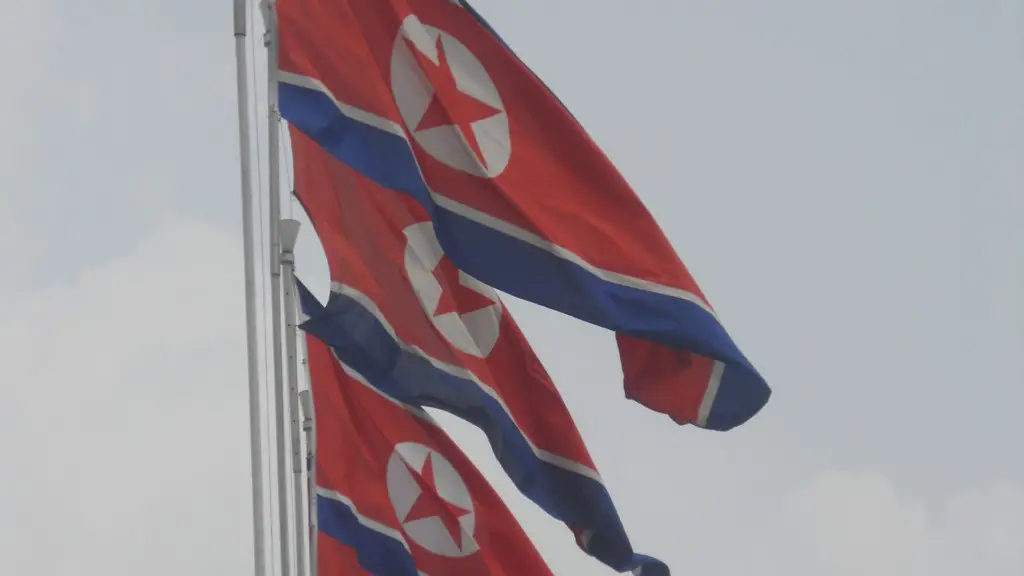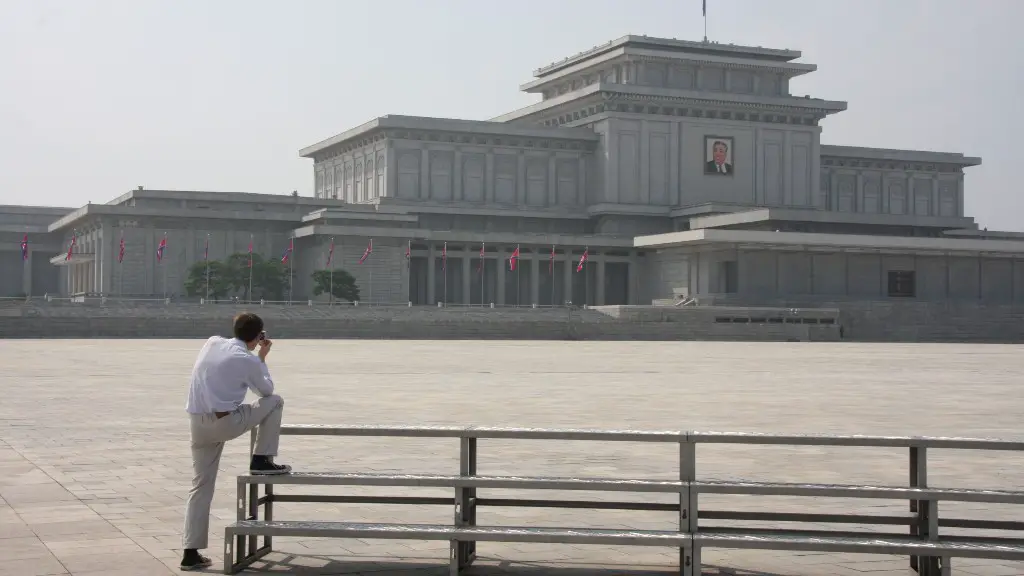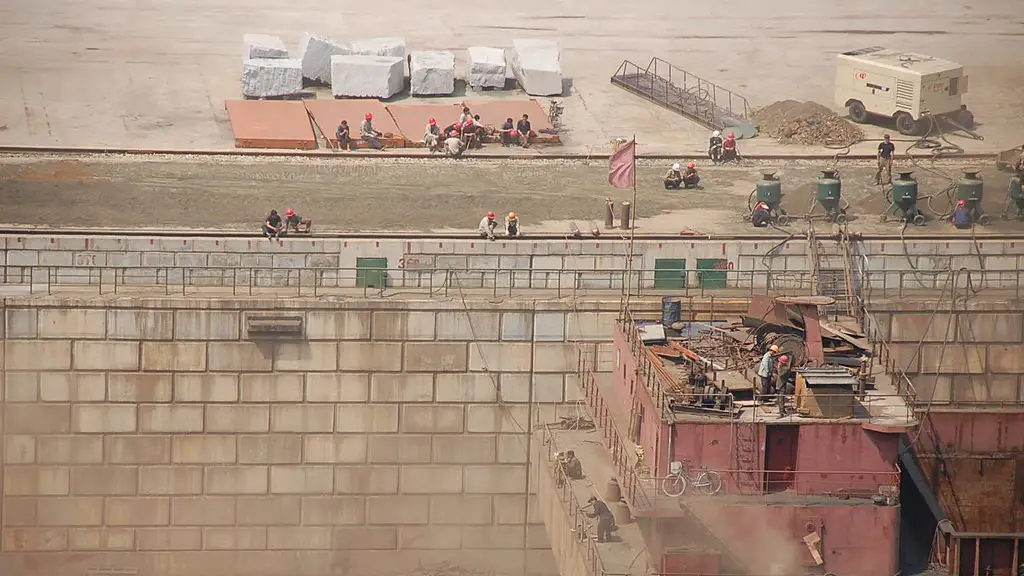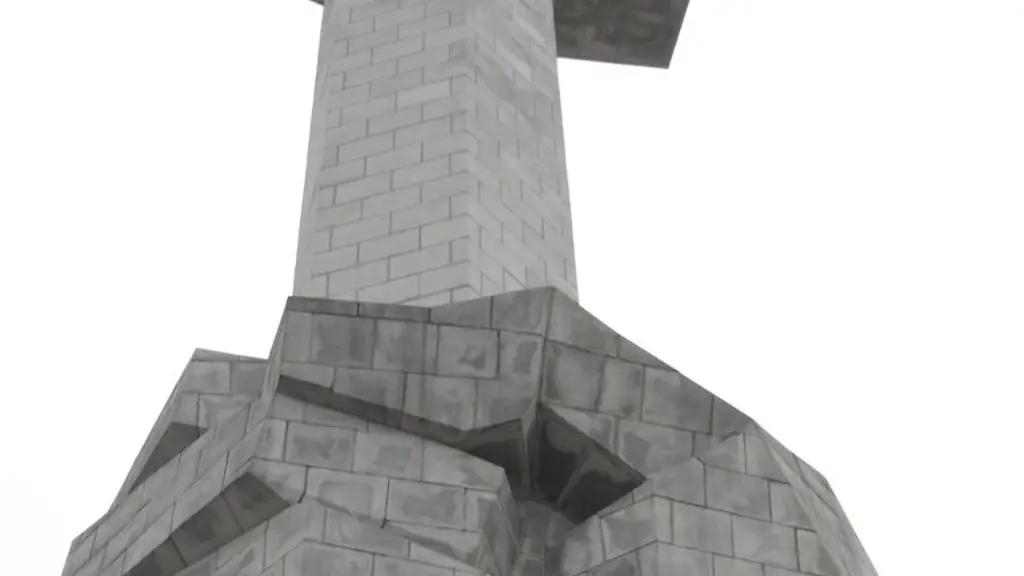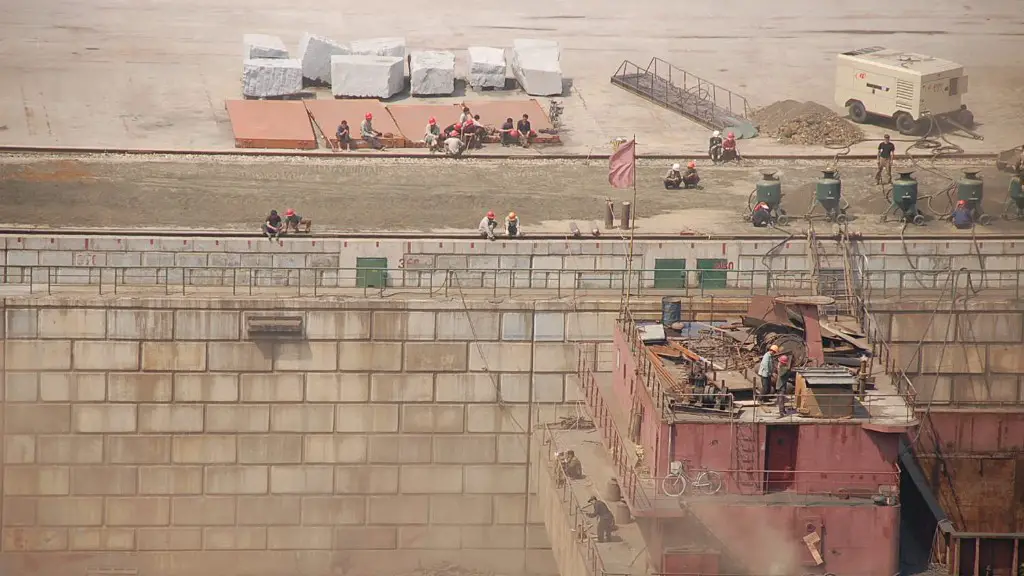North Korea has been a highly oppressive state for over seventy years. The oppressive system has denied its citizens basic rights such as freedom of speech, press, assembly and movement. It maintains sovereignty and control over its population through harsh repressive tactics such as public executions, torture and forced disappearances. For decades, North Korea has been one of the most isolated countries in the world with tight government control over its borders and media.
The implications of living in a totalitarian state are vast, with millions of North Koreans living in conditions of extreme poverty and deprivation. Access to basic medical care, nutrition and education is very limited, and reports show that many North Koreans endure hunger on a daily basis. The United Nations High Commissioner for Human Rights has declared North Korea’s human rights record as the ‘worst in the world’.
A key reason why North Korea has not been liberated is its geo-political status in the world. North Korea is backed by its powerful ally, China, as well as by Russia. This makes North Korea a formidable opponent for any plans of action taken to liberate it, as these two countries have the power to veto any attempts to do so. It is also notable that both China and Russia have a lot to gain in terms of economic benefit, should the North Korean state maintain it’s totalitarian control.
Another key contributor to why North Korea is still not liberated is the political stalemate between the United States and its allies on one side and North Korea and its allies on the other. This has resulted in a tense situation between the two sides, with both parties unwilling to budge and firmly entrenched in their positions. This has created a deadlock of sorts, in which it is more beneficial to both sides to not make concessions, thus making it difficult to initiate, or even discuss, alternative courses of action.
The issue of North Korean liberation is further complicated by the fact that North Korean leadership has been quite successful in controlling its population by clamping down on any opposition through systematic repression and propaganda. This has resulted in a nation that appears uninterested in any political reforms, leaving little room for externally-instated initiatives.
Sanctions
The international community has responded to North Korea’s state of affairs by implementing stringent economic sanctions in an effort to push North Korea to reform. The United Nations has employed a combination of economic blocks and travel restrictions to pressure North Korea’s government to comply with international norms. However, the sanctions appear to have had limited success, as North Korea continues to invest in nuclear weapons and projects entities violating the sanctions.
Many experts have debated the efficacy of economic sanctions on North Korea and how successful it will be in bringing about reform. Although sanctions may be a good tool for curtailing North Korea’s military ambitions, their long-term effectiveness is yet to be seen. In addition, the sanctions could also have a detrimental impact on the North Korean people, leading to further poverty, deprivation, and ultimately further suffering.
Proponents of economic sanctions argue that they are an effective means of increasing diplomatic pressure on Pyongyang and are a way to send a unified message to the North Korean regime. However, critics have argued that the secretive and repressive nature of the North Korean government means that the sanctions have had little to no tangible effect on the everyday lives of the general public.
Dialogue
Dialogue has been proposed by some diplomats and experts as a potential solution to the problem of North Korean liberation. Many have argued that an open and frank dialogue between the North Korean government and the international community is essential in order to begin to make progress on issues such as human rights and nuclear arms proliferation. The aim of any dialogue should be to address the underlying problems that have perpetuated the state of North Korean oppression.
Engaging in dialogue with North Korea is generally considered a controversial issue. On one hand, many experts believe that dialogue is a better option than military action, and can be used as an effective measure to resolve the conflict. On the other hand, there are those who believe that North Korea’s leadership is too unpredictable and untrustworthy, and that dialogue could be used as a way to delay and ultimately evade true change.
The idea of dialogue has been met with some suspicion by certain nations and groups, as they fear it could potentially reward the North Korean regime without making tangible changes to its system of government. Any proposed dialogue should take into consideration the distrust of North Korea by certain nations, as well as the fears surrounding the possibility of continued human rights abuses.
International Pressure
The key to the liberation of North Korea has been the utilization of diplomatic pressure by the international community. Ever since the Cold War ended, the United Nations and other international bodies have been pushing for the North Korean state to free its people from oppressive and inhumane conditions. Various resolutions have been passed by the UN General Assembly and the UN Human Rights Council condemning North Korea’s actions and demanding it institute reforms.
The United States government has also taken the lead in calling for change in North Korea, introducing a series of sanctions and diplomatic initiatives to increase international pressure on the North Korean regime. The U.S. has also offered its support to other nations who are striving to promote human rights and democracy in the region. However, some experts have argued that U.S. policy is misguided, as it appears to focus too heavily on economic sanctions rather than more constructive engagement with the North Korean government.
The European Union has also taken an active role in the matter, pushing for an improvement in human rights and spearheading the creation of an investigation into human rights abuses in North Korea. The EU has worked with the UN and other international bodies to create a diplomatic framework that would help to promote reform and accountability in the North Korean state.
In addition to the efforts of major international bodies, numerous non-governmental organizations have also been working for years to bring about a positive change in North Korea. These organizations have been working tirelessly to expose the injustices of North Korea’s government and working towards a solution that will benefit all North Koreans.
Conclusion
North Korea remains an oppressive and closed-off regime, and the problem of how to liberate North Korea remains unsolved. The issue of North Korean liberation is a complex and multi-faceted one, which has been further complicated by its geo-political context and its relationship with both China and Russia. Any proposed solution must take into account the risks posed to both North Korea’s citizens and to the international order as a whole.
The international community has responded to the crisis in various ways. Sanctions have been imposed as a way to put economic pressure on North Korea, while dialogue has been proposed as a means to address the underlying issues that have perpetuate the oppressive regime. International organizations and NGOs have also been working to promote the cause of human rights and democracy in the region.
Only time will tell whether North Korea will be liberated from its oppressive system and what form such a liberation will take. The international community must continue to push for a solution that is mutually beneficial and that respects the rights of North Korea’s citizens.
